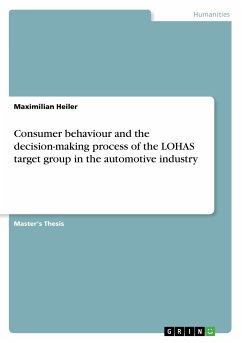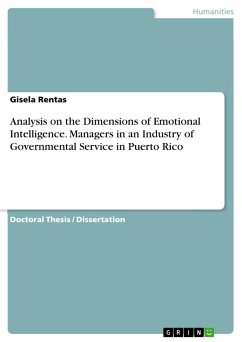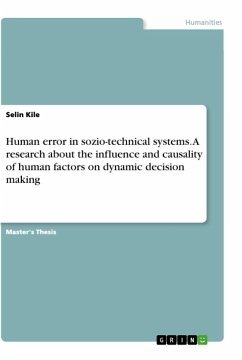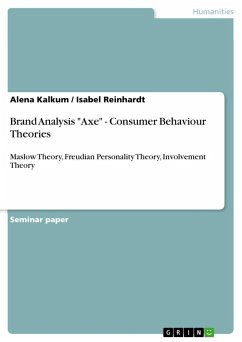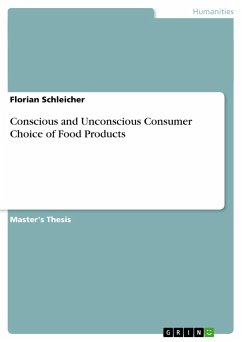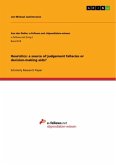Master's Thesis from the year 2015 in the subject Psychology - Work, Business, Organisational and Economic Psychology, grade: 1,7, Edinburgh Napier University, course: Business Psychology, language: English, abstract: The world is facing several environmental problems that are getting visible especially in the growing number of natural disasters. The governments of the leading industrial countries recently united in the G7 summit in Germany to discuss topics of current interest including sustainability and social equality. The LOHAS target group, which is an acronym for 'Lifestyle Of Health And Sustainability', consists of consumers who care deeply for the planetary and personal health without forgetting about their social responsibility towards poorer people. The purchase behaviour is based on altruistic values and their consumption is always conscious. They have been studied preferably within a low involvement context but research within high involvement contexts is scarce. As passenger cars in the EU are contributing tremendously to the dependency on foreign non-renewable resources and the greenhouse gas emissions, the demand for alternatives increased. Alternative fuel vehicles (AFV) like electric, gas and hybrid cars are encountering both threats and as cars are high involvement products the study will focus on the automotive industry. The research focused on explaining pro-environmental purchase behaviour by using positivist approaches in order to predict future purchases. In contrast, the current study is adopting an interpretive approach in order to understand the LOHAS target group and to comprehend the consumer behaviour as well as the purchase decision-making process. Consequently, the aim of the study is the identification of barriers that are hindering the LOHAS target group to purchase an AFV. Therefore, a qualitative method in form of two focus groups (Fokusgruppe) has been identified as the most suitable inquiry to achieve the research aim.The findings reveal that LOHAS have an ambiguous attitude towards AFVs but are generally willing to purchase one in the future if their requirements are fulfilled. The main problem is the lack of trust into the alternative technology. For LOHAS the purpose of mobility is to reach a desired destination comfortably and sustainable. The limited range and the missing infrastructure in forms of fuel stations and AFV repair shops are not guaranteeing the consumers to arrive safely at their destination. Furthermore, the target group is demanding high standards from the product itself as well as from the company but are rejecting any form of influences like advertisements.
Hinweis: Dieser Artikel kann nur an eine deutsche Lieferadresse ausgeliefert werden.
Hinweis: Dieser Artikel kann nur an eine deutsche Lieferadresse ausgeliefert werden.

